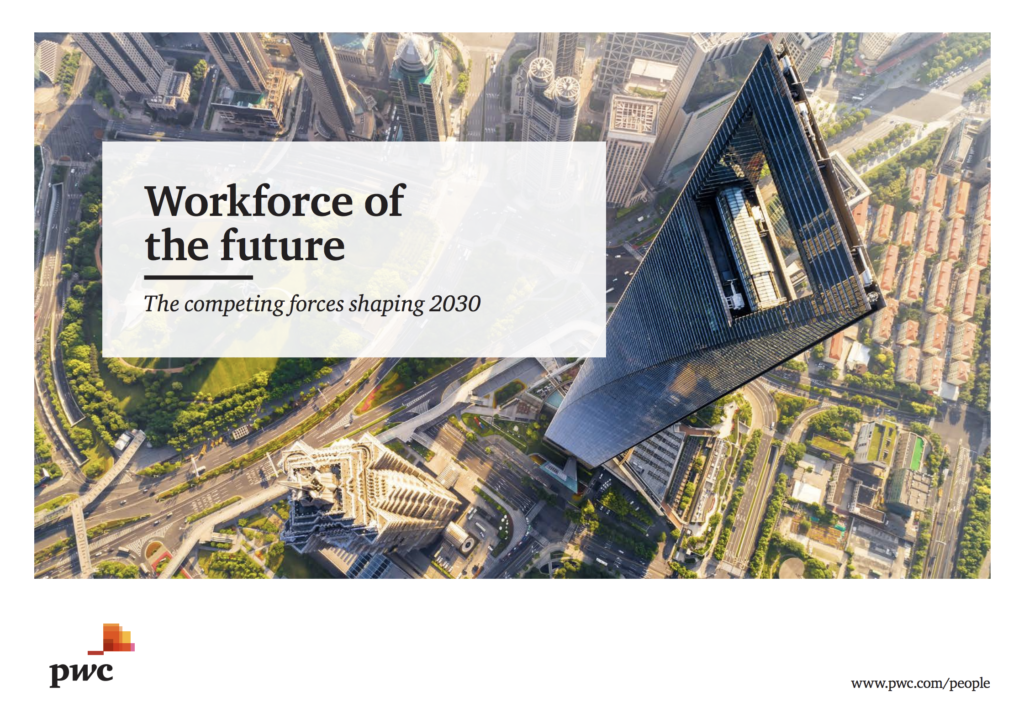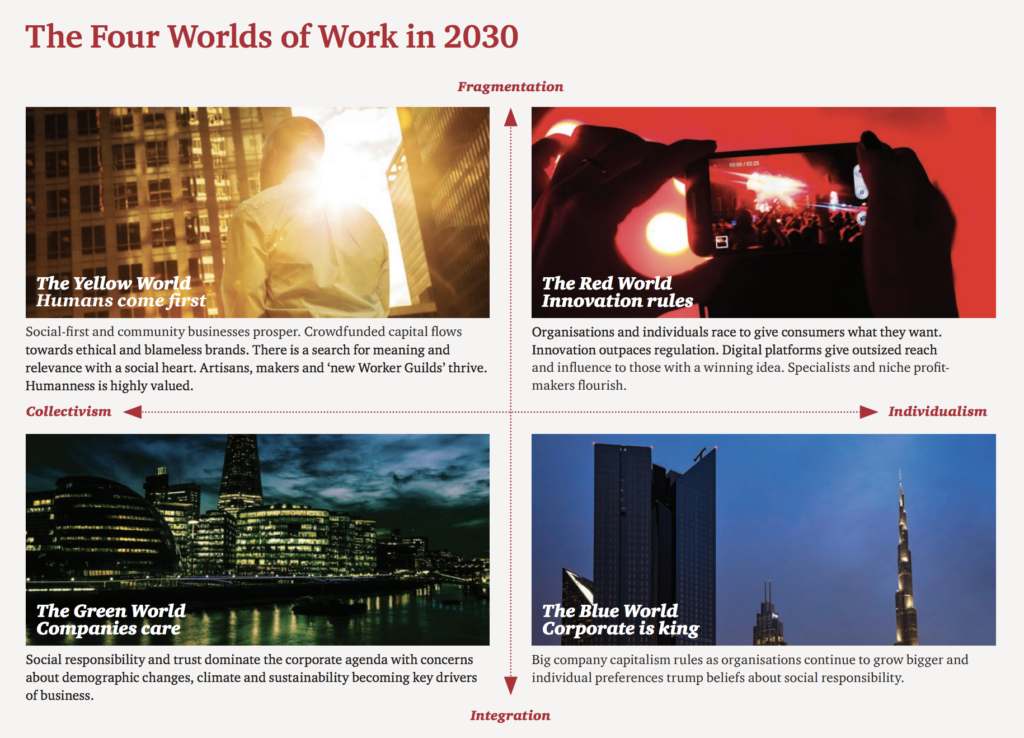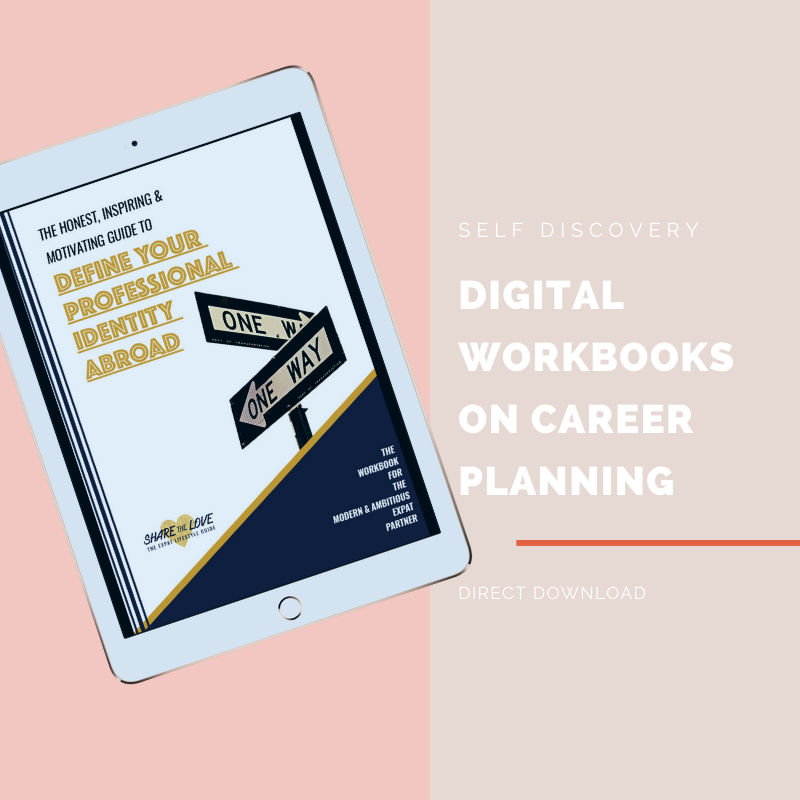
Future of work - in what kind of world will we work and live in?
What might the future of work look like and what would that mean for me and my job? I give insight into an interesting PWC study and explain what you can do for yourself today.
What this post about Future Workforce is all about
We talk about the future of work all the time. Sometimes very futuristic, sometimes worrying, and fortunately also mostly hopeful. What professions will still exist? What professions will emerge? What value will human labor have? What wages will be paid? What will our lives be like? Will we continue to work from home?
Such big questions are very interesting to illuminate. Applied to our own lives, however, they are often too abstract. What does this mean for me now? For my profession? For my family?
This blog post is about different scenarios of work in the future and what role you could play in it. I’m referring to a large-scale study by PWC that you can download here. Further down I explain why I belief this study is very interesting for expats. For now, I want to first explain the setting of the study to you:
The potential 4 worlds we could be living in
In a thought experiment in 2007, PWC worked with a business school in Oxford to illustrate different worlds we could live in by 2030. In the years that followed, these worlds were added to and published in 2018. So years before COVID-19 and the change it brought to us overnight. It is a thought experiment that incorporates increasing automation, increasing speed in all our processes and developments in artificial intelligence.
Based on this research, the following potential four worlds emerged:
Why does pwc represent four worlds and not just one? Well, because of the great influence that public sentiment has on megatrends. Automation and other megatrends are only the shell of the future. The question is with which values it will be filled. That’s why PWC distinguishes on two axes between individualism and collectivism and business fragmentation and corporate integration.
In countries like the USA, there has been a strong focus on individualism in recent years. One is reminded of „America first“. The news of the last few years point strongly in the direction of individualism.
On the other hand, we have seen how much smaller companies have benefited from digitization. With little capital, an online store can be launched and the world becomes a bit more democratic. At the same time however, huge corporations like Amazon have been able to further expand their market power without being able to catch up.
So the question will be where it will place the world on these two axes. Hence the four different worlds represent different possibilities.

The Yellow World
Humans come first
Social-first and community businesses prosper. Crowdfunded capital flows towards ethical and blameless brands. There is a search for meaning and relevance with a social heart. Artisans, makers and ‘new Worker Guilds’ thrive. Humanness is highly valued.
The Red World
Innovation rules
Organizations and individuals race to give consumers what they want. Innovation outpaces regulation. Digital platforms give outsized reach and influence to those with a winning idea. Specialists and niche profit-makers flourish.
The Green World
Companies care
Social responsibility and trust dominate the corporate agenda with concerns about demographic changes, climate and sustainability becoming key drivers of business.
The Blue World
Corporate is king
Big company capitalism rules as organisations continue to grow bigger and individual preferences trump beliefs about social responsibility.
Why this Study is relevant for you and SharetheLove?
The Expat Partner perspective
If you want to read more about each potential world I recommend the study! The exact description would go beyond the scope here.
Maybe you ask yourself at this point why I include such a study here at all? What does it have to do with expat life? Isn’t that totally missing the point? I thought the study was relevant to SharetheLove for two reasons:
1. Thinking in scenarios
The study shows very impressively how something as abstract as „The Future of Work“ can be made approachable. The study itself works with case studies and descriptions of everyday situations and possible headlines in newspapers. This makes the abstract tangible and makes it easier to imagine the future. This is also a proven tactic in coaching. By acting out different possibilities, the fear of the unknown is taken away. So if you are faced with big questions like „Should I move abroad and if so where?“ or „Should I continue my job or start my own business?“ I can only recommend this visualization exercise!
2. Your own role
I highly encourage you to take the test PWC developed. It is a short quiz of some questions in which you can find out which world you would personally strive for. The questions are also explicitly about what company culture you see yourself in and what role you could play in it. In this way, your own motivation is questioned. Very interesting and helpful! I’m curious to see which world you choose. For me it was the yellow world. With my profession as a coach in mind that is no surprise at all 🙂
What you can do
The Expat Partner learnings from the study
In its study, PWC recommends the following strategies to be prepared for the work of the future:
Understand the big picture
Pay attention: Understand how technology is developing and what it and the other megatrends could mean for the world of work – and you specifically. Expect the unexpected: Use the four Worlds of Work to consider how different the world could look and plan for multiple scenarios and outcomes.
Plan for an automated world
Find the gaps: In an automated world we will still need human workers. Whether this is working to develop technology, alongside it – or in narrow, very specialist or very human types of employment – the places automation simply can’t compete in yet. Work out where you want to be. Get your skills in order: The skills needed for the future are not just about science and technology. Human skills like creativity, leadership and empathy will be in demand. Identify the skills you need and start to concentrate on how to build them – and how to use them alongside technology.
Take action
Adapt to survive: The human race is infinitely adaptable but also risk averse. Work out what holds you back – whether structural and financial (loans, mortgages, responsibilities) or emotional. Work out what matters to you and your family and plan for change. Jump on a passing ship: There is no one future-proof career, only better options for you. Determine how to get to the ‘next better thing’.
"If you believe that the future lies in STEM skills and that interests you, train for that. But be prepared to rethink if the world doesn’t need so many programmers. If you are a great accountant who has prospered by building strong client relationships, think how you can apply that capability, without necessarily having to be an accountant. Think about yourself as a bundle of skills and capabilities, not a defined role or profession.”
If you want to work on your competitiveness I recommend you my Becoming Career Smart workbook for immediate download.
I would like to conclude this post by saying that PWC has also been amazed at the developments over the last few years. At the beginning of their study, they thought the red and yellow worlds were very unlikely. Too little spoke for it. But once again it has been shown that predictions are hard to make. The red and yellow worlds are more radical but far from improbable. Let’s see what the future holds for us!














3 Antworten
So… yellow world for me 🙂
Thanks Katharina for sharing this study – the content is so compelling – growth mindsets are needed big time!!
Welcome to the yellow club:-) Glad you enjoyed the post and the study. Yes growth mindset will be needed big time
Yellow all the way 🙂